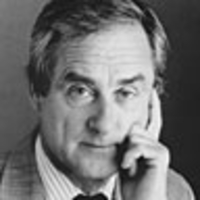
President Obama, faced with the insubordination of General Stanley McChrystal, should take a look at the showdown between President Truman and his top general in 1951. General Douglas MacArthur, a hero of the Pacific War, had turned the Korean War around by a brilliant landing at Inchon to the rear of the apparently unstoppable North Korean invaders and then blundered by ordering U.S. troops to advance to the communist Chinese border.
A brown envelope, red-stamped “Action for MacArthur,” was brought by a Signals courier to MacArthur’s home in Tokyo. The letter he read with his wife, Jean, at his side, was signed by the president: “I deeply regret it becomes my duty as commander in chief of the United States military forces to replace you as supreme commander, Allied Powers, commander in chief of the United Nations command; commander in chief Far East Command; commanding general, U.S. Army, Far East.”
Watch President Truman Fire MacArthur
ADVERTISEMENT
Truman’s dismissal defied public opinion. MacArthur returned home to the cheers of 7 million people at a ticker-tape parade in New York. His oracular address to a joint session of Congress, calling for the bombing of Manchuria and a blockade of China, was broken by paroxysms of cheering and 30 wild standing ovations, climaxing in a pandemonium of tears and shouts of acclaim. Twenty million people across America watching grainy black and white television never forgot his moving peroration, “Old soldiers never die, they just fade away…”
Truman called it, “Nothing but a bunch of damn bullshit.”
• Leslie H. Gelb: Let McChrystal Stay • James Hoge: McChrystal Must Go • Excerpts from McChrystal’s Rolling Stone Interview • View Our Gallery of More Loose-lipped Public Servants• 5 Potential McChrystal Successors• More Daily Beast contributors on McChrystal’s futureTruth is, Truman was slow to act, as Obama seems to be slow to act now, confronted with the second act of insubordination by the much-admired General McChrystal. Truman regretted how long he put up with MacArthur. In the White House, he called him a double crosser but without a showdown MacArthur just stepped up his private and public campaign against the Truman administration for total war on China. He demanded that 26 atomic bombs be dropped. He openly disobeyed the Joint Chiefs’ order that only South Korean troops could approach the Chinese border. He supported the red-baiting reactionary House Minority Leader, Joseph Martin, who said if Truman refused to go out for total victory, he should be indicted “for the murder of thousands of American boys.” Alas, it was MacArthur himself who merited that charge. Having turned back the invaders, he was reckless. He split his forces. His provocations of the nervous Chinese unleashed a massive surprise counterattack. MacArthur’s armies were heart-breakingly pushed back all the way they’d come, the longest retreat in American history with terrible losses.
For a time, it looked as if Truman’s presidency was at risk. Republican Robert Taft asked the general to be his running mate. MacArthur had bigger things in mind. His eyes, wrote William Styron, were “like those of a man whose thoughts had turned inward upon some Caesarean dream magnificent beyond compare.”
An important part of the delirium MacArthur evoked was an explosion of the pent-up frustrations of a people longing to hear that the most intractable problems were susceptible to the exercise of America’s moral will. Sound familiar?
Some 69 percent of Americans backed him—but as passions cooled, more sober thoughts prevailed. The crowds and Congress cheered, but only 30 percent were willing to risk a wider war with China.
Another general had an eye on the White House.
He was described as the apotheosis of mediocrity by MacArthur, but he was much wiser and shrewder. Unlike MacArthur—or General McChrystal—he knew there was a time to speak and not so. In the MacArthur hubbub, this general would only say: “I am going to maintain silence in every language known to man.” Dwight David Eisenhower, not MacArthur, was elected the 34th president of the United States—and ended the Korean War.
Harold Evans is the author of The American Century.






